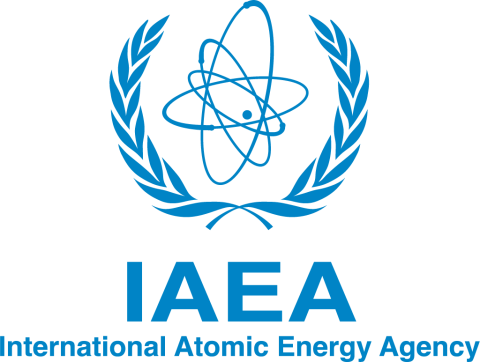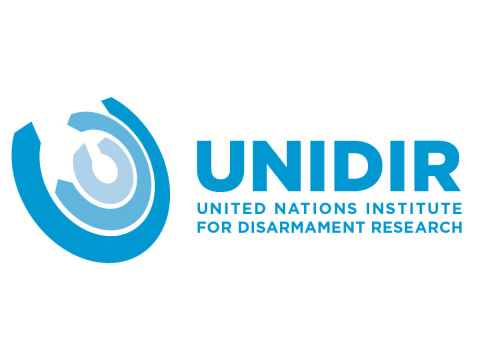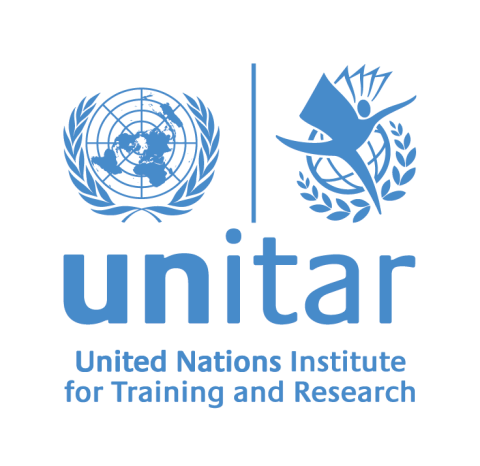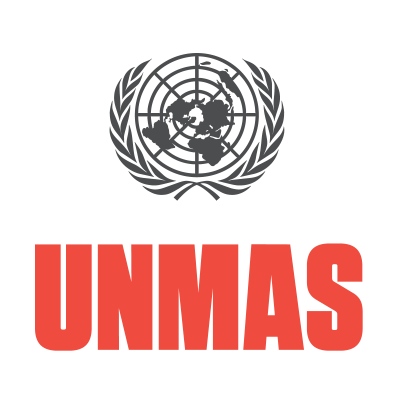
Breadcrumb
The Conference on Disarmament
The Conference on Disarmament was established in 1979 as the single multilateral disarmament negotiating forum of the international community. The current Director-General of UN Geneva, Tatiana Valovaya, is also the Secretary-General of the Conference on Disarmament as well as the Personal Representative of the UN Secretary-General to the Conference.
During their meetings, happening three times a year, the Conference’s 65 Member States currently focus on the following topics:
- cessation of the nuclear arms race and nuclear disarmament
- prevention of nuclear war, including all related matters
- prevention of an arms race in outer space
- effective international arrangements to assure non-nuclear-weapon States against the use or threat of use of nuclear weapons
- new types of weapons of mass destruction and new systems of such weapons; radiological weapons
- comprehensive programme of disarmament
- transparency in armaments
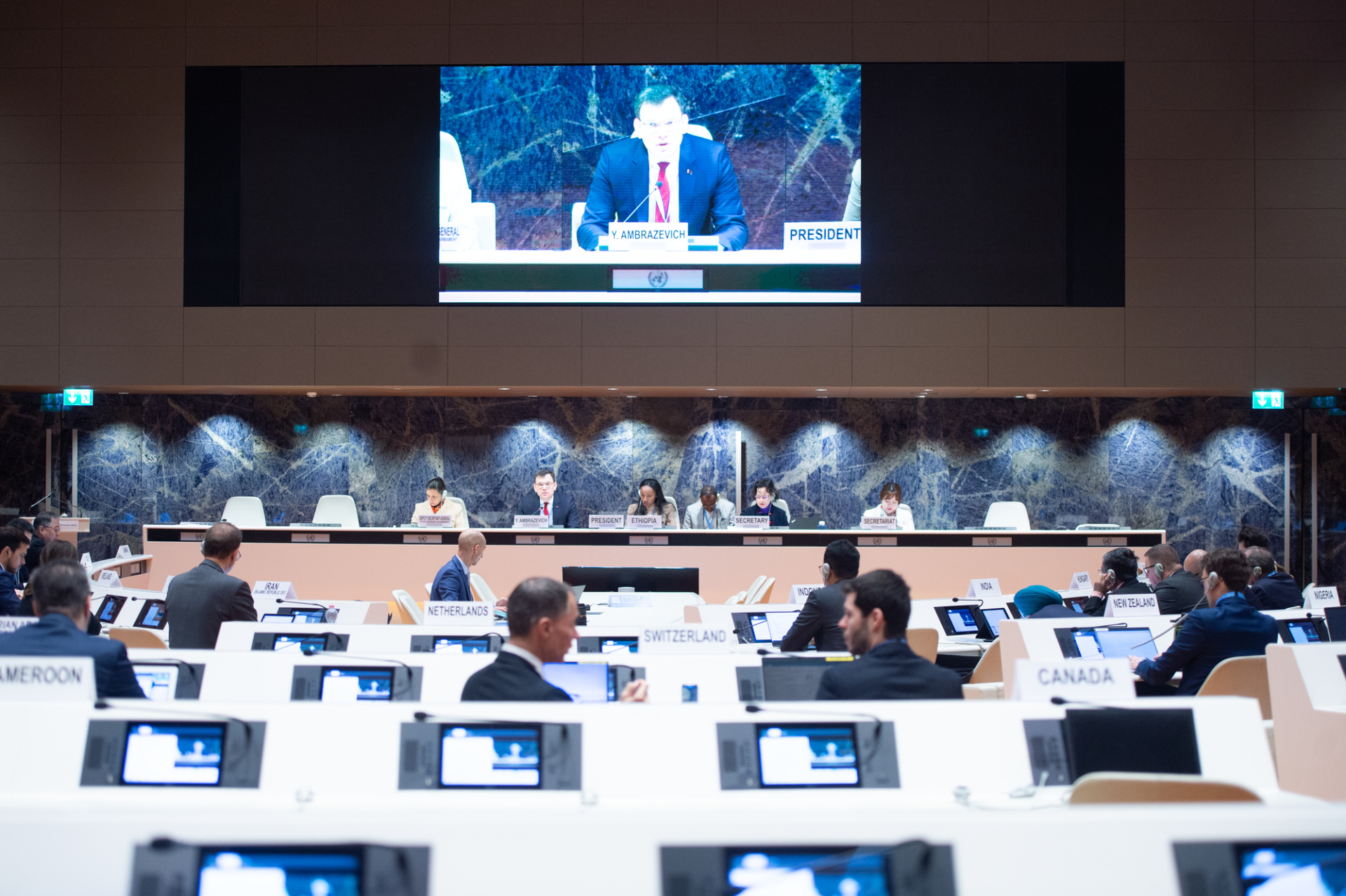
Geneva-based conventions and treaties
The Anti-Personnel Landmine Convention (APLC) is the treaty which prohibits for humanitarian reasons the use, development, production, stockpiling, retaining or transfer of anti-personnel mines. It thus aims at putting an end to the suffering and casualties caused by anti-personnel mines, that kill or maim every year thousands of innocent civilians, obstruct economic development and reconstruction, and inhibit the repatriation of refugees and internally displaced persons.
The Biological Weapons Convention (BWC), the first multilateral disarmament treaty banning the production and use of an entire category of weapons, was the result of prolonged efforts by the international community. All BWC meetings are held in Geneva and are serviced by the BWC Implementation Support Unit in the Geneva Branch of the Office for Disarmament Affairs.
The Convention on Cluster Munitions was concluded by the Dublin Diplomatic Conference in 2008. The tasks performed by the UN Secretary General are mandated in the Convention and relevant General Assembly resolutions. These include the collection and dissemination of national transparency reports, the facilitation of clarification of compliance; and the convening of the Meetings of States Parties and Review Conferences.
The Convention on Certain Conventional Weapons (CCW) is a key instrument of international humanitarian law and, with its five protocols, seeks to ban or restrict the use of specific types of weapons that have indiscriminate effects on civilians or cause unnecessary suffering for combatants. Since 2016, a Group of Governmental Experts (GGE) of the CCW is examining possible challenges posed by emerging technologies in the area of lethal autonomous weapons systems (LAWS). CCW meetings are held in Geneva and are serviced by the CCW Implementation Support Unit in the Geneva Branch of the Office for Disarmament Affairs.
In the field of Small Arms and Light Weapons (SALW) and of the Arms Trade Treaty (ATT), the Geneva Branch ensures both the liaison with the Office for Disarmament Affairs in New York as well as with the Geneva-based Non-Governmental and International Organizations, and represents the Office in related meetings held in Geneva.
UN Geneva also hosts other meetings related to disarmament instruments such as sessions of the Advisory Board on Disarmament Matters, the Preparatory Committee of the Review Conferences of the Nuclear Non-Proliferation Treaty (NPT), expert panels and seminars.
Disarmament research
The UN-internal knowledge base for questions on disarmament is largely built by the Geneva-based United Nations Institute for Disarmament Research (UNIDIR):
- How can we use nuclear energies while reducing the risk of use of nuclear weapons?
- What role does artificial intelligence play in conflict and wars, what role could it potentially play in disarmament?
- What security implications come with our increasing exploration and use of space?
All these are question tackled by the UNIDIR team of researchers. Findings are published and shared with Member States and other stakeholders during training sessions and global conferences.

Contact UNODA Geneva
Organizations working on disarmament
The IAEA is the world's center of cooperation in the nuclear field. It was set up as the world's "Atoms for Peace" organization in 1957 within the United Nations family. The Agency works with its Member States and multiple partners worldwide to promote safe, secure and peaceful nuclear technologies.
The United Nations Interregional Crime and Justice Research Institute (UNICRI) was established in 1968 pursuant to Economic and Social Council Resolution 1086 B (XXXIX) of 1965, which urged an expansion of the United Nations activities in crime prevention and criminal justice. The Institute is a [...]
As a dedicated training arm of the United Nations system, the United Nations Institute for Training and Research (UNITAR) provides innovative learning solutions to individuals, organizations and institutions to enhance global decision-making and support country-level action for shaping a better [...]
UNMAS collaborates with 11 other UN departments, agencies, programmes and funds to ensure an effective, proactive and coordinated response to the problems of landmines and explosive remnants of war, including cluster munitions. UNMAS was established in 1997 to serve as the UN focal point for mine [...]
The Geneva Branch of the Office for Disarmament Affairs assists Member States in supporting their disarmament, arms control and non-proliferation efforts aimed at achieving the goal of general and complete disarmament under strict and effective international control.
The Branch provides [...]
The United Nations Office on Drugs and Crime (UNODC) has the mandate to make the world safer from drugs, organized crime, corruption and terrorism. The organization is committed to achieving health, security and justice for all by tackling these threats and promoting peace and sustainable well-being [...]

